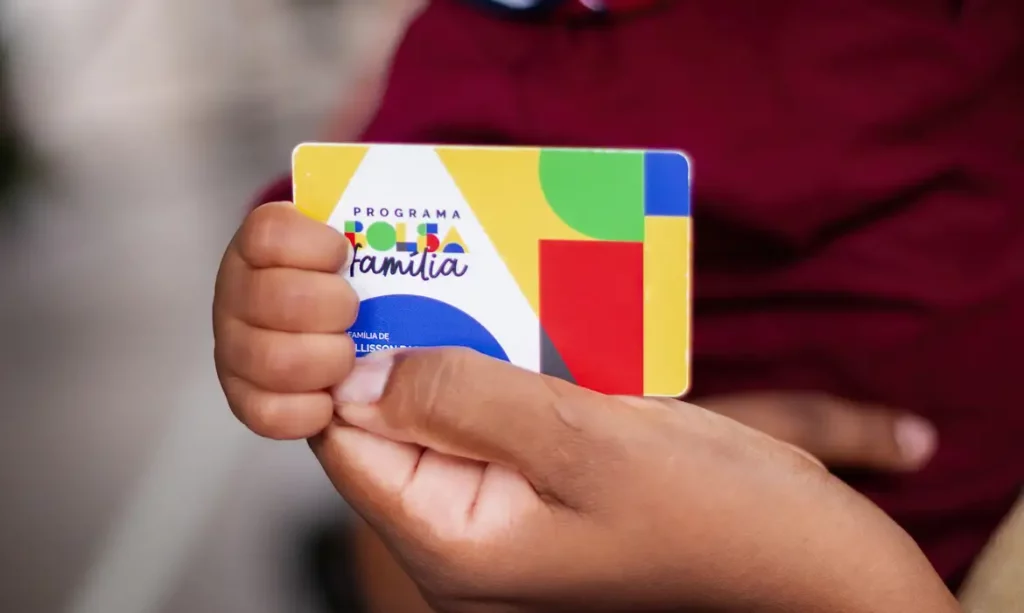Adverts
Bolsa Família: Your Chance for Social Transformation
If you want to find out how you can be part of this benefit that helps thousands of families every year, keep reading
Discover how the program that transformed the lives of millions of Brazilians is adapting to new challenges. Bolsa Família is one of the most emblematic social assistance programs in Brazil, created to combat poverty and promote social inclusion.
Adverts
Since its beginning in 2003, it has positively impacted millions of Brazilian families, helping to guarantee a minimum income and improving access to education and health. In this article, we will detail how Bolsa Família works, explore its history and impact, and discuss the challenges and criticisms it has faced over the years. We will also address future prospects for the program.

Do you want to know more about who is entitled to Bolsa Família?
Complete Step by Step to Get
* You will remain on the same page
Adverts
History and Context
Bolsa Família was created as part of a larger strategy to tackle poverty and inequality in Brazil. By unifying several existing income transfer programs, the government was able to simplify bureaucracy and increase the system's efficiency. The program requires families to meet certain conditions, such as keeping children in school and participating in health programs, to continue receiving benefits.
The main objective of Bolsa Família is to mitigate extreme poverty, providing the most vulnerable families with a minimum income for their basic needs. The logic is simple: by guaranteeing a basic income, the program allows these families to get back on their feet, while boosting the country's social and economic development.
Adverts
How does Bolsa Família work?
Bolsa Família makes direct income transfers to registered families on a monthly basis. Values vary depending on family composition and per capita income. The program serves families in poverty and extreme poverty, with a monthly income per person of up to R$ 218.00. If the family's income increases, they can still remain in the program if they receive between R$ 219.00 and half the minimum wage.
Beneficiary families must comply with established conditions, such as keeping their children in school and participating in health programs, to continue receiving the benefit. Furthermore, the program offers complementary actions, such as training courses and access to social assistance services, which help to improve the quality of life of families and build a better future.
Adverts
* You will remain on the same page
Social Impact
Since its creation, Bolsa Família has brought significant changes to Brazilian society. One of the main benefits is the reduction of extreme poverty, guaranteeing a basic income for millions of Brazilians to cover essential needs such as food, housing and clothing. By providing financial relief, the program has helped families focus on other areas crucial to their development and well-being, such as education and health.
The program's conditionalities encouraged school attendance, resulting in a significant increase in access to education. This increase not only improves the future prospects of the children benefiting, but also promotes a culture of valuing education in the communities served. The health impact is also notable, with improvements in vaccination rates, prenatal care and regular visits to health centers due to the requirement to participate in health programs.
More Highlights
Bolsa Família also contributes to the economic development of benefiting communities, injecting resources directly into local economies. This stimulates trade in goods and services, promoting job creation and strengthening local entrepreneurship, in addition to reducing social inequality, making Brazilian society more inclusive and fair.
The fight against hunger is another strong point of the program, which has been crucial in ensuring that the most needy families have access to essential foods, contributing to the food and nutritional security of millions of Brazilians in vulnerable situations.
* You will remain on the same page
Criticisms and Challenges
Despite its many benefits, Bolsa Família also faces criticism and challenges. Some of the main criticisms include the claim that the program disincentivizes work, as families receive a minimum income without the need for employment. However, studies indicate that this effect on the employment rate is limited.
Fraud and corruption are also constant concerns, with cases of benefits being received improperly. The government has worked to combat these problems by improving inspection and control. Ensuring the long-term financial sustainability of the program is another significant challenge, especially as the number of beneficiaries increases.
Future perspectives
Bolsa Família continues to be a central piece in the government's strategy to combat poverty and inequality. The program is constantly evolving, with plans to increase benefit values, improve management and strengthen conditionalities. There is also an effort to partner with other development initiatives, such as job training programs, to help families become more self-reliant.
One of the planned changes is the expansion of the program, both in terms of budget and number of beneficiaries, reflecting the government's commitment to expanding benefits to a wider audience. The use of advanced technologies, such as biometric identification systems, is being considered to improve oversight and ensure that benefits reach families who truly need them.
* You will remain on the same page
Concluding
Bolsa Família has been an essential tool in the fight against poverty and inequality in Brazil. Its positive impacts are visible in the significant reduction of extreme poverty, increased access to education, especially among children from beneficiary families, and the substantial improvement in family health, with an emphasis on children and pregnant women.
However, challenges such as long-term financial sustainability and the constant need to improve the program to make it even more efficient and comprehensive continue to exist. As Bolsa Família evolves, it is crucial that government and society work together to ensure that it continues to play a fundamental role in Brazil's social transformation and improving the living conditions of the most vulnerable families, thus contributing to a fairer and more equitable future. equal for all.